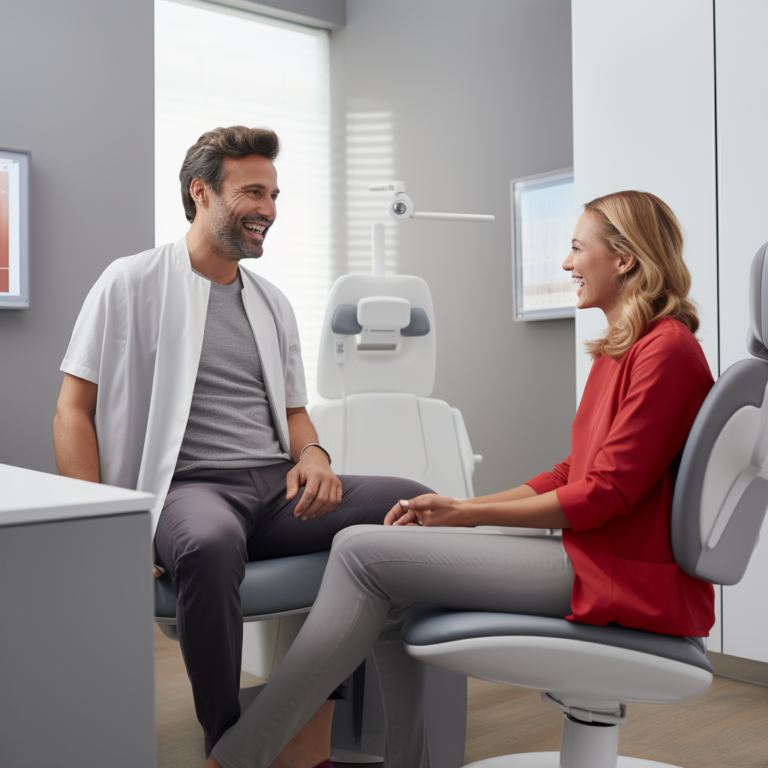Exploring PTSD Treatment in Scottsdale
Hope for PTSD Treatment in Scottsdale, AZ
People with Post-Traumatic Stress Disorder (PTSD) often need new ways to treat their condition because it is so hard to control. Transcranial Magnetic Stimulation (TMS) therapy is a new treatment option that shows promise for people in Phoenix and Scottsdale, Arizona, who are thinking about getting help for PTSD.
Understanding TMS Therapy for PTSD
TMS therapy is a non-invasive procedure that uses magnetic fields to stimulate parts of the brain that help control mood and how we react to trauma. It’s mostly known and approved by the FDA for treating Major Depressive Disorder, but it’s getting more attention for its possible benefits in treating PTSD.

Scientific Research on TMS for PTSD Treatment
The study of Transcranial Magnetic Stimulation (TMS) for Post-Traumatic Stress Disorder (PTSD) is a new field that has shown some promising results, even though it is still in its early stages. Let’s learn more about this research, especially the important study that was published in the “Journal of Psychiatric Research.” It’s important to know that this treatment is off-label, which means that the FDA has not approved it for PTSD specifically.
Ready For A TMS Consultation?
Overview of the Treatment for PTSD Study
Study Design and Participants
TMS Treatment Protocol
Outcome Measures
Key Findings
Symptom Improvement
It was most important to note that people with PTSD who received TMS treatment had a lot fewer symptoms. Along with better mood, hyperarousal and avoidance behaviours that are common in people with PTSD got better.
Response Rate
The study also showed the response rate, which is the percentage of people who showed improvements in their symptoms that were clinically meaningful. This is a key measure for figuring out how well TMS works for treating PTSD.
TMS in Treating PTSD in Scottsdale

Potential Therapeutic Option

Neural Mechanisms
BEGIN YOUR RECOVERY TODAY!
Step towards reclaiming your life with our support. Unveil the possibilities with our therapies in Scottsdale, AZ. Call to unfold your path to wellness.

TMS Therapy at American TMS Clinics
TMS Therpy with
Brain Scan Technology is another type of TMS that we offer at our clinic. TMS therapy improves standard TMS by adapting the treatment to each person’s unique neural rhythm. This may make the therapy more effective, especially for conditions like PTSD that are hard to treat. We are committed to giving each patient personalised care, and this advanced method involves looking at brainwave patterns to make treatment plans more effective.
PTSD Treatment Method and Accessibility
Our Patients will find more comfortable TMS therapy sessions at Phoenix clinic . Treatments usually last 30 minutes and don’t require any downtime, so patients can go back to their normal activities right away. Many people who are looking for alternatives to traditional PTSD treatments can use TMS and brain scan technology because they don’t involve any invasive procedures.

Our Commitment to Patient Care:
American TMS Clinics is dedicated to providing state-of-the-art PTSD treatments in Scottsdale in a caring and supportive setting. PTSD is a complicated condition, and we’re here to help our patients through their treatment. Although the results are positive, they also open the door for more studies to confirm TMS’s role in treating PTSD, especially in terms of how well it works over time and how to make treatment plans more effective. As research in this area continues to grow, TMS could become an important part of a larger multi-modal approach to treating PTSD.
We invite you or someone you know who is dealing with PTSD and looking for alternative treatments to consider TMS therapy at American TMS Clinics in Scottsdale, AZ.
Contact us to learn more about how TMS and brain scan technology could be part of your path to recovery.
This is for informational purposes only and is not a substitute for professional medical advice.
FAQ
The best treatment for PTSD often includes a combination of psychotherapy and medication. Common therapies include Cognitive Behavioral Therapy (CBT), Eye Movement Desensitization and Reprocessing (EMDR), and Transcranial Magnetic Stimulation (TMS) therapy. Each treatment plan is tailored to the individual’s needs to achieve the best outcomes.
Therapists who specialize in trauma and PTSD are best for treating this condition. This can include psychologists, psychiatrists, and licensed clinical social workers who have experience and training in evidence-based therapies like CBT, EMDR, and trauma-focused therapies.
TMS is typically recommended for patients with major depressive disorder who have not responded to traditional antidepressants. Eligibility is determined based on medical history, the severity of the condition, and prior treatment responses.
The 7 common symptoms of PTSD are:
- Intrusive thoughts or memories
- Nightmares
- Flashbacks
- Severe anxiety or hypervigilance
- Avoidance of reminders of the trauma
- Emotional numbness or detachment
- Difficulty sleeping or concentrating
PTSD can get worse with age if left untreated. Stress and significant life changes can exacerbate symptoms. However, with appropriate treatment, individuals can manage symptoms and improve their quality of life.
Transcranial Magnetic Stimulation (TMS) is recognized for its safety, with minimal long-term side effects reported. Common side effects like scalp discomfort or headache are usually mild and occur during or shortly after treatment sessions. Long-term side effects are rare, making TMS a well-tolerated option for patients, especially when compared to other treatments like Electroconvulsive Therapy (ECT) or certain medications that can have more significant systemic or cognitive side effects. Ongoing research continues to affirm the safety of TMS, with studies indicating no significant adverse effects over extended follow-up periods.
The FDA's approval of TMS for treating major depressive disorder underscores its safety profile. This approval, based on rigorous clinical trials, reinforces TMS as a safe option with a low risk of long-term side effects. As with any medical treatment, patients should consult healthcare providers to understand the risks and benefits based on their individual health needs.
